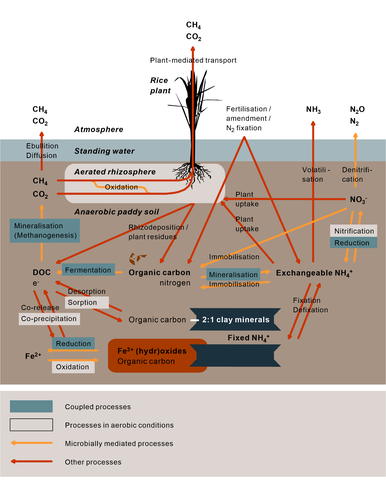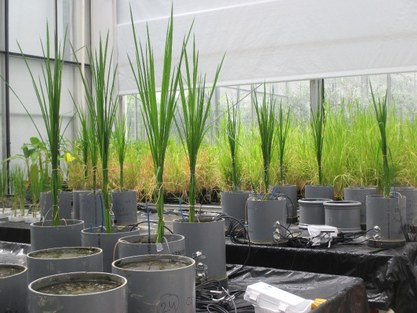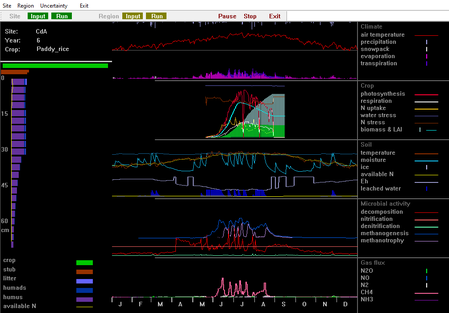Biogeochemical cycles in paddy soil under water-saving irrigation
Paddy soils for rice production are traditionally flooded, and are therefore in general subjected to thoroughly different soil biogeochemical processes than upland soils. Indeed, in absence of oxygen, alternative electron acceptors are used during soil redox processes such as the decomposition of organic matter, which for example leads to the emission of the major greenhouse gas methane. Meanwhile, the use of water-saving irrigation practices is increasingly promoted and adopted in paddy rice production in order to deal with increasing water scarcity in many important rice-producing areas. In comparison with continuous flooding, the application of water-saving irrigation affects several biogeochemical processes because of the periodic introduction of oxygen. Yet, knowledge of the exact impact on many key processes can still be fundamentally improved, which is for example important to enable reliable model predictions of paddy field greenhouse gas emissions or rice yields. In this PhD, we firstly try to estimate to which extent lower methane emission under water-saving irrigation is caused by enhanced methane oxidation by methanotrophic bacteria. Secondly, we want to assess how the incorporation of exogenous organic matter such as rice straw can affect decomposition of native soil organic matter under different irrigation regimes. We expect that under water-saving irrigation, native soil organic matter would be less prone to decomposition, because the resulting lesser biogenic reduction of Fe3+ pedogenic oxides should enable more native soil organic matter to remain stabilised by sorption on those Fe oxides. Thirdly, high amounts of paddy soil ammonium are typically fixed in interlayers of negatively charged clay minerals, therefore becoming unavailable for plant uptake. We suspect that the application of water-saving irrigation would decrease the negative charge of clay minerals, leading to lower equilibrium fixed ammonium contents. These three research objectives are addressed by means of field, greenhouse and lab experiments using stable C and N isotopes. Lastly, we use experimental paddy field data to evaluate the performance of an existing mechanistic biogeochemical model, DNDC-Rice, in simulating the effects of water-saving irrigation management.



